My stay on the island
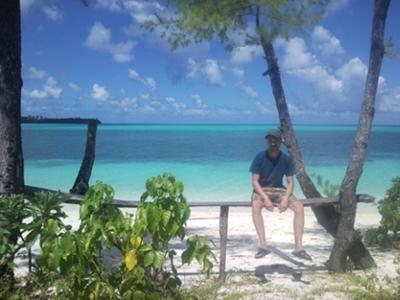
And three white "misters" were on tropical coral island at 5 degrees south of the equator. We did not expect that these people on the island will be so good for us to treat. We identified hut, but in addition also began to feed us every day, absolutely free and disinterested. These people we are very much a gimmick. Of all the tourists who visited the island - there were still a group of Norwegians and Germans and all. This is three years of their life on the island.
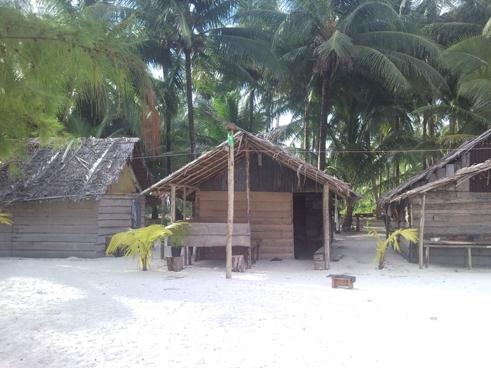
our hut
The hut is a frame with a roof made of sago palm leaves. And do not hack nor any log cabins, the winter harvest timber, plugging the gap in the wind, etc. - Simple and comfortable, most importantly protects from rain and sun. Tropical definitely win in this matter in the taiga biome. Simplicity itself to ensure housing.
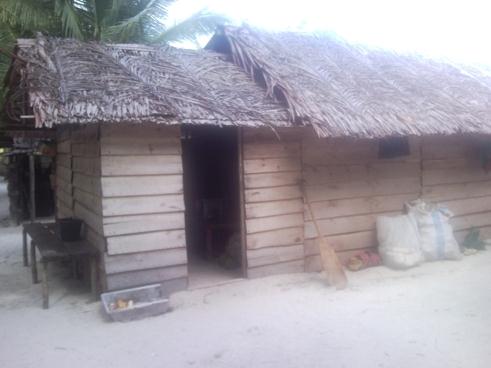
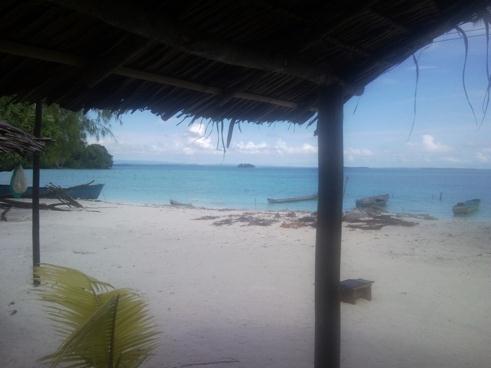
It took a few days of our stay on the island. On the day of our arrival, it was cloudy and rain has passed, but in the next few days all was clear and very hot. We woke up at dawn, "with the first roosters" and begin your day. Not hot yet, you can go to swim, to do all things and their morning breakfast. We were fed for slaughter. Sometimes even left and had to give food to the dogs and chickens.
This monstrous heat just swallowed us and we just could not budge the afternoon. Plus had our burns, we've still got to Ambon. Yes, calluses on his feet did not heal, but rather increased in size. Sunburn also increased from staying on it, even the most insignificant.
The video shows this village ("kampu" in their language), in which we lived in a place with these people. Our hut and the interior. The life and beauty of the beach. In this hut we lived two weeks. Not much of course, but a good little by little. We slept, ate and prepared food. Although in most cases we prepared it (food) local women. On an island inhabited by three beaches. Central, where we were, western and eastern. Share these beaches paths through the jungle.
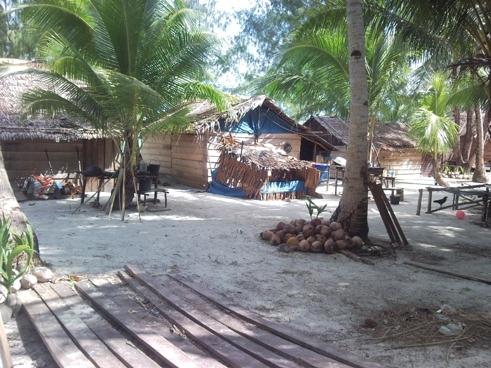
Backyard, right from our hut
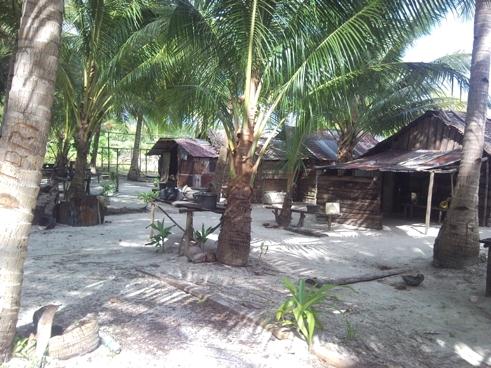
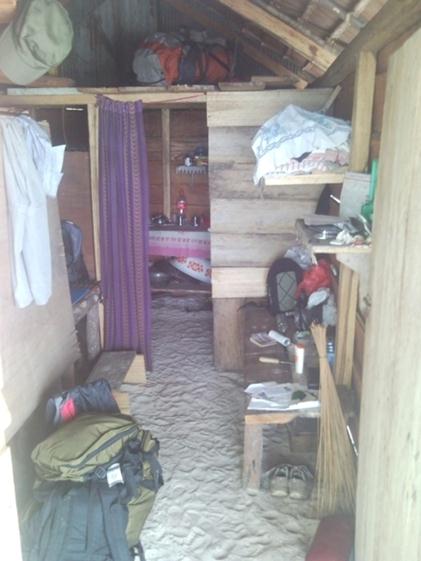
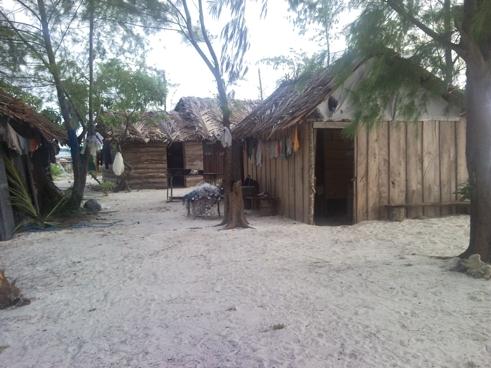
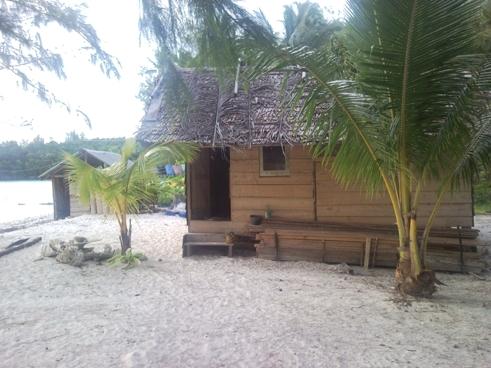
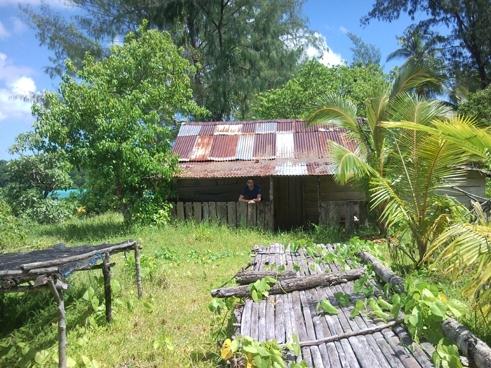
Hut with another island beach (from the west)
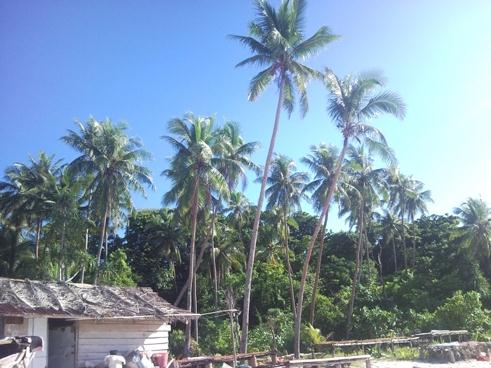
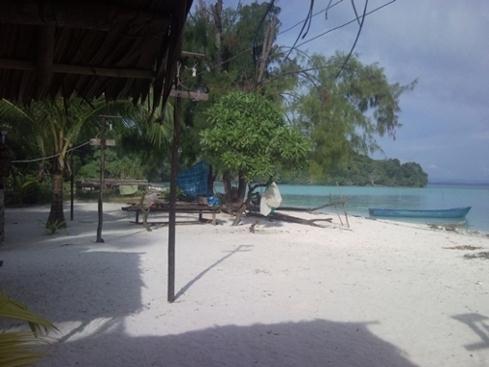
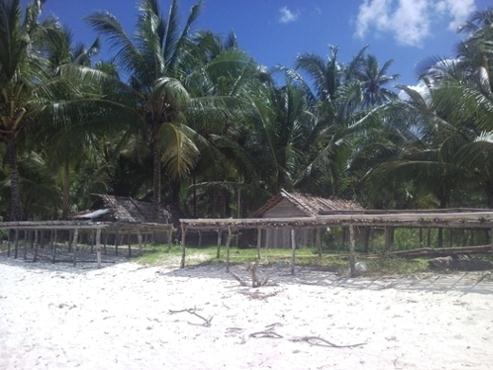
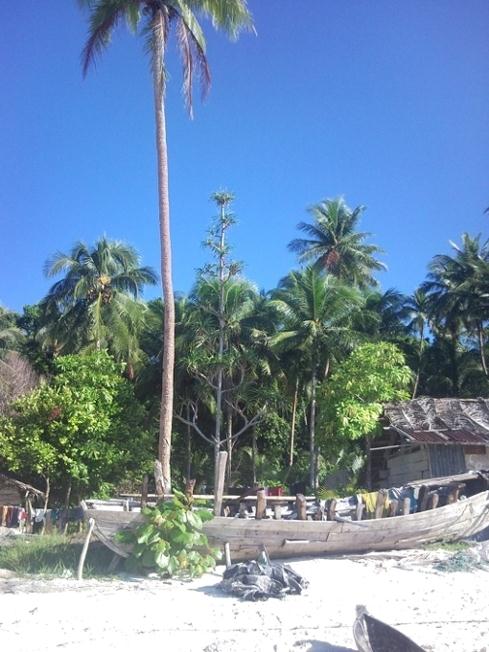
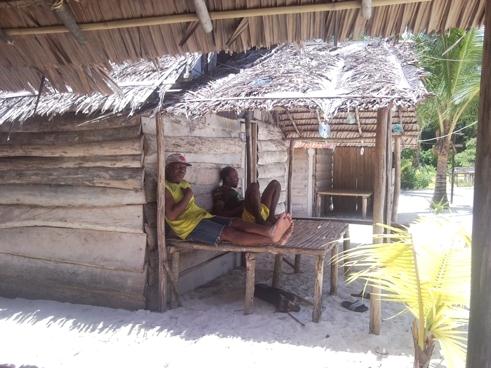
Full pastime Mr. Lawrence
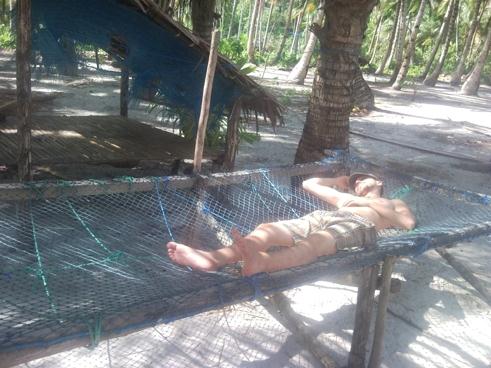
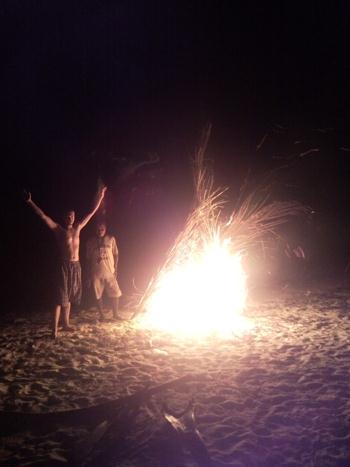
Life on the island is a leisurely pace. People not to not hurry and much time just lying around somewhere and rest. I even get the impression that these people are not aware of negative emotions. All music is based solely on their major keys. Be it any song from your phone, from the radio, but even when Lawrence played the guitar, it is only majeure composition. Neither are you there in A minor! It is understandable, because the lives of these people in fact Chunga-Changa. Eat coconuts chew bananas! No special care, do not harvest timber for construction and firewood, do not stick to the company from start to finish, wear long clothing. In short a lot of familiar things to us, there simply is not there and they do not need. Live in peace and all. Spend money mainly on all kinds of things, like gasoline for generators, cell phones, cigarettes and various pranks.
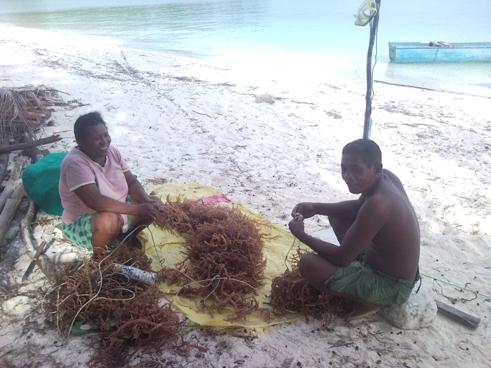
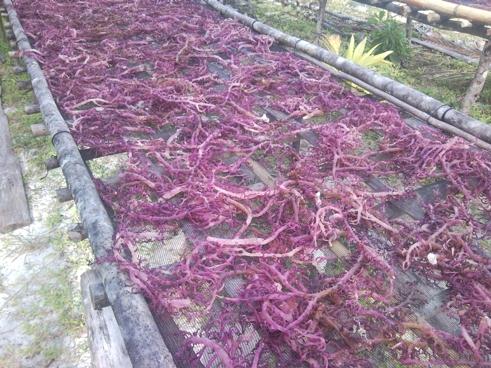
drying agar-agar
Fishing they pass or networks, or underwater with a homemade harpoon, or from a boat. Just a piece of fishing line, sinker, bait on a hook - a piece of fish. Of us managed to catch only Max spinning small fry in the remaining cases we were not lucky. Likely inexperience. But looking like a local is easily obtained, felt uncomfortable with our new-fangled (for them) gear. Trolling neither of which could not catch, from the shore, and in the open sea with a boat. So more about fishing, not what to write.
People eat mainly the gifts of nature, especially that produced and grown. But do not disdain the food from the store, for example, like instant noodles. Just buy rice, vegetable oil, all sorts of condiments and sauces. But the bulk of its products. Instead our potatoes locals willingly consume bananas as in cheese - and roasted, which is also very good to taste. Just grow taro, for his roots, quite fresh in taste and rich in starch. Papaya is grown on the island and cassava, and everything else is brought from its residential village on the mainland (Tual).
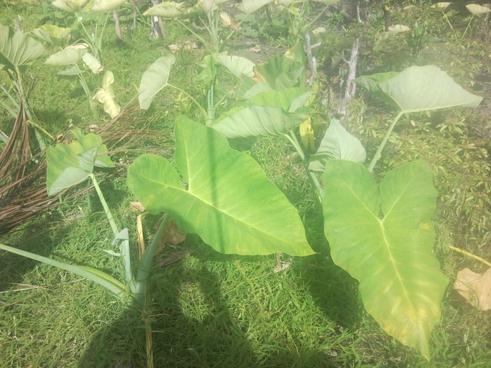
taro
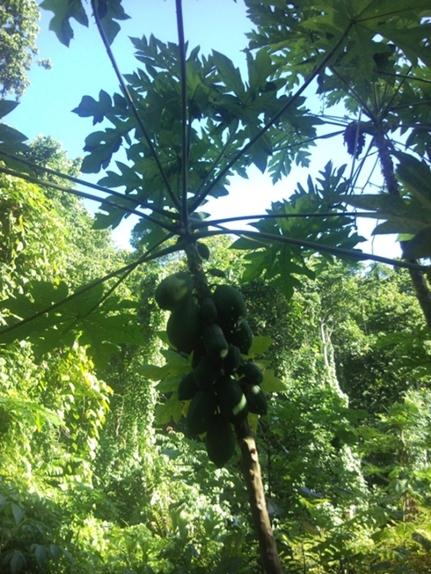
papaya
As often brought us pomelo and something else which overseas fruit we was eating a sweet soul. But here's the snake nut or Salak me as it is not very suitable to your taste.
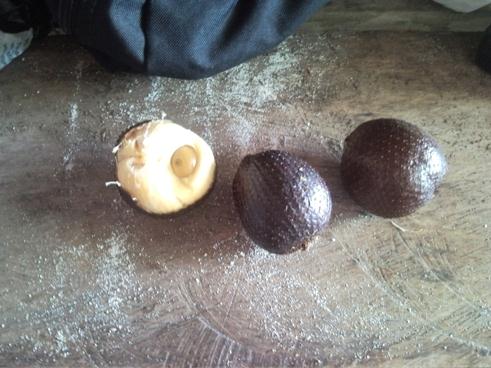
salak or snake fruit
Fish were many representatives and stavridovyh scombers, well at least I think so. Once ate crawfish tremendous. Threesomes something like mastered, even though with a garnish. And stingray still eating. All very tasty, the fish was a lovely soul.
Communicated with them mainly in bahasa Indonesia. 30-40 learned the most essential words and we basically had enough of this. Here are some of them:
- Thank you - Terima kasih
- Friend - Teman
- Good morning! - Selamat pagi
- Food - Makanan
- Potable water - Air minum
- Fish - Ikan
- Chicken - Ayam
- Hot - Panas
- Sun - Matahari
- Pain - Sakit
- I - Saya
- One - Satu
- Two - Dua
- House - Rumah
- Rain - Hujan
- Coconut - Kelapa
In English somewhat understood only one Lawrence, as long as we do not come to Mr. Amro, professor of political science at North Sulawesi. Here he and Mr. Lawrence were our guides in this new world for us.
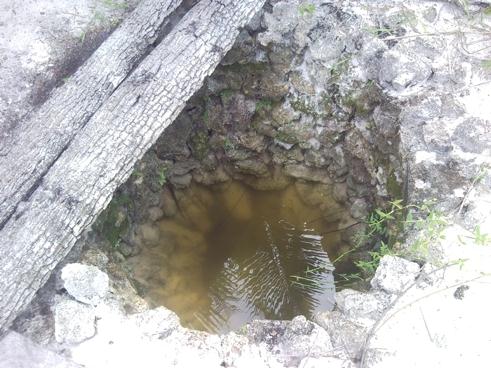
And this is the problem is solved with a constant source of water on a coral island. Just dig a hole five feet deep, the walls impose something that is not rolled in the sand and ready - there will accumulate water fit for drinking. Drink as much as you want! Such wells they have two, this one is for drinking, and the other for technical purposes (to wash, wash dishes) Although the second well looks much better, he laid out a concrete and the water is cleaner than this. This paved coral stones. Local amenities are a traditional booth, barely bigger than we are used to size equipped with communicating vessels. Photos do not, so we omit this topic. Wash are special little room-maze in which you come, poured over a bucket of water from the well and mylishsya (if you want).
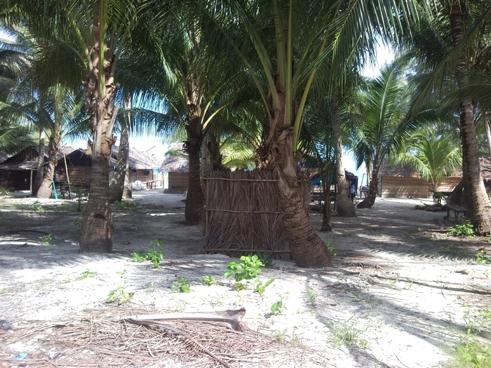
I took a trip on various seeds and living on the island decided to still try to plant them. Planted tomatoes, radishes, carrots, peas and corn. Corn and peas went up on the third day and began to grow rapidly right before our eyes. Until then, I thought that sandy soil is not fertile, was fertile than in Russia. Everywhere on the sand and see small papayki mango seeds germinated after being hit by throwing it or spitting. And neither of the special care, watering and fertilizer. In humid climates and land remains wet and water so it is not particularly necessary.
More local keeping chickens, they quietly go by themselves where they want. Walk their chickens peck and any bugs. In the tropics, bad divorces fire. And like the sun bakes so scary, but the wood is still slightly damp. For example Kindle Fire magnifier using fiber from coconut tinder, we have failed. Just after drying wet things still remain slightly damp. And something which may even rot. I did not dry sneakers 3 days in a hut, starfish caught in the sea did not dry in the sun 2 days, and sandals all covered in mold! So keep that in mind.



